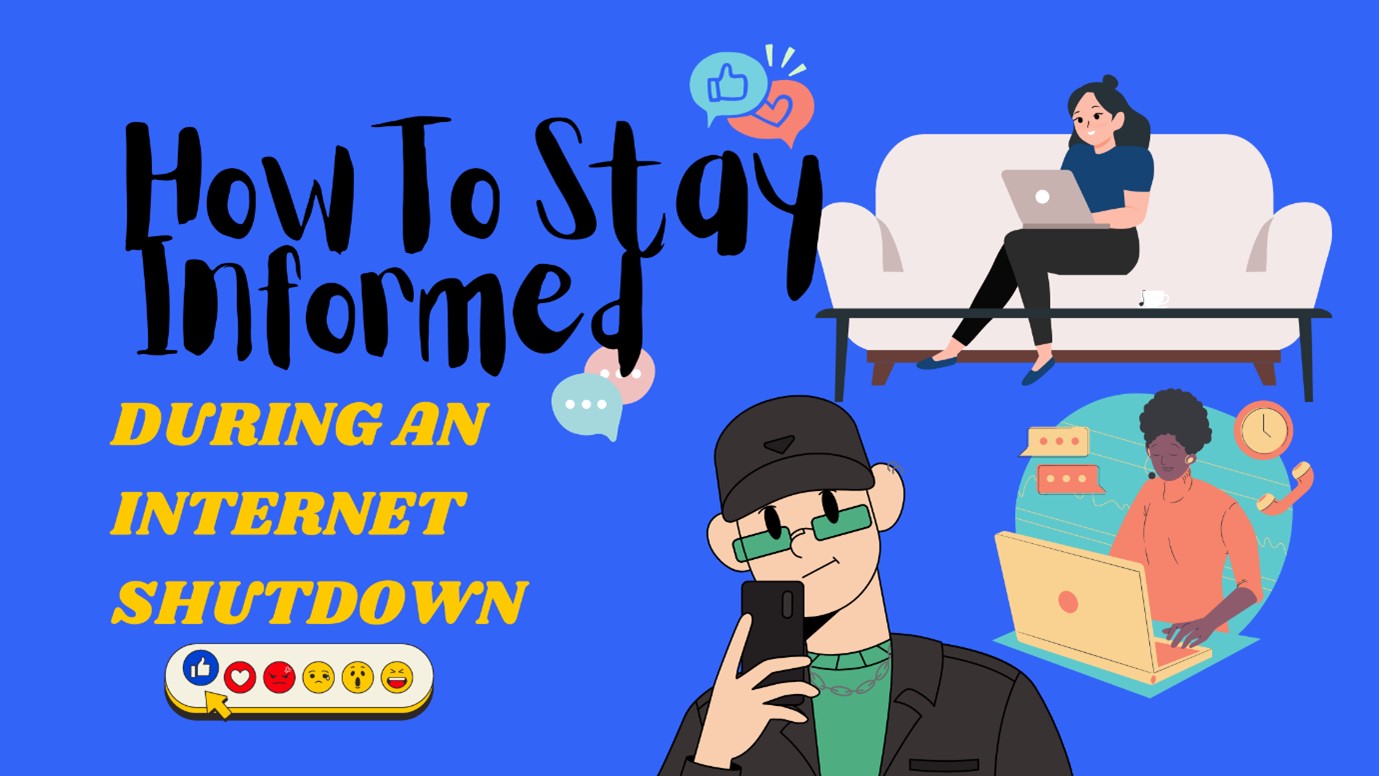By Silvia Tsitsi Mukwindidza
The Internet is a powerful tool for communication, business, information sharing, and civic engagement. But in some countries, governments have implemented internet shutdowns that have resulted in people failing to access these essential services. Internet shutdowns can have a devastating impact on people’s ability to stay informed, communicate with their loved ones, and participate in democratic processes. In a world where the internet is becoming increasingly important, internet shutdowns are a violation of human rights.
What is an internet shutdown?
An internet shutdown is a deliberate government action that aims to restrict or block access to the internet. This can be done by cutting off the physical cables that connect to the internet, or by blocking access to specific websites or social media platforms. Internet shutdowns are broken into two categories namely total-shutdown and partial-shutdown. Total shutdown refers to a complete switch off of the internet in the whole country or specific targeted area.
Partial shutdown on the other hand refers to a situation where certain websites, social media platforms, or online services are blocked. Partial shutdown can also mean internet throttling where the speed of the internet is being suppressed such that certain activities cannot be done or completed.
Zimbabwe has experienced multiple Internet shutdowns in the past and these have happened during such activities as elections, labour stay-aways, and political demonstrations. Iraq recently blocked the internet as a strategy to control national exams cheating.
Why are internet shutdowns used?
There are several reasons why governments across the world resort to internet shutdowns. Sometimes, internet shutdowns are used to suppress dissent or to prevent the spread of information about protests, political events or any activity that might be deemed to be a threat to national security. In some cases, internet shutdowns are also used as cover during military operations.
How to stay informed during an internet shutdown:
There are a number of things you can do to stay informed during an internet shutdown:
Use alternative communication methods. If the internet is down, you can still communicate with others using text messaging, phone calls, or social media apps such as Telegram that are not blocked by the government in cases of a partial shutdown.
Access news from reliable sources. There are a number of news organizations that provide coverage of internet shutdowns. You can find these sources by searching online or by following them on social media.
Stay connected with friends and family. Let your friends and family know that you are aware of the internet shutdown and that you will be using alternative communication methods to stay in touch.
Be careful about what information you share. If you are concerned about your safety and the safety of others, it is important to be careful about what information you share online. This includes details like your location, your political views, and your activities.
Public Wi-Fi may be risky. If you do need to use public Wi-Fi, be aware that it is not secure. Your communications could be monitored by anyone who is also connected to the network.
Be patient and persistent. Internet shutdowns can be frustrating, but it is important to be patient and persistent. Keep trying to access news and information, and don’t give up.
Verify the information that you receive: It’s important to stay informed but verify the information that you hear or read about during an internet shutdown by confirming with multiple sources.
Internet shutdowns are a serious threat to freedom of expression and access to information. If you live in a country where internet shutdowns are used, it is important to know how to stay informed during these events. By following the tips in this article, you can help to ensure that you are able to stay connected with the world around you, even when the internet is down.
Additional tips:
Download news apps and websites to your phone or computer before the internet shutdown begins. This way, you will be able to access them even if the internet is down.
Keep a list of reliable news sources and social media accounts that you can follow during an internet shutdown.
Learn how to use a VPN (virtual private network) to access blocked websites and services.
Be aware of the signs of an internet shutdown, such as slow internet speeds or errors when trying to access websites.
If you are aware of an internet shutdown, please share this blog post with your friends and family. Together, we can help to raise awareness of this issue and to protect freedom of expression and access to information.
The internet is a powerful tool for good. It can be used to connect people, to share information, and organize for change. But when governments use internet shutdowns to restrict access to these essential resources, they are undermining the very principles that make the internet so valuable.
We must all stand up against internet shutdowns. We must demand that governments respect our right to freedom of expression and access to information. And we must work together to build a more just and equitable internet, where everyone can participate and be heard.
#internet #internetshutdown #digitalrights #digitalinclusion #digitalliteracy #civicparticipation #internetfreedom #internetaccess #internetrights #digitalrightsadvocate #keepiton



